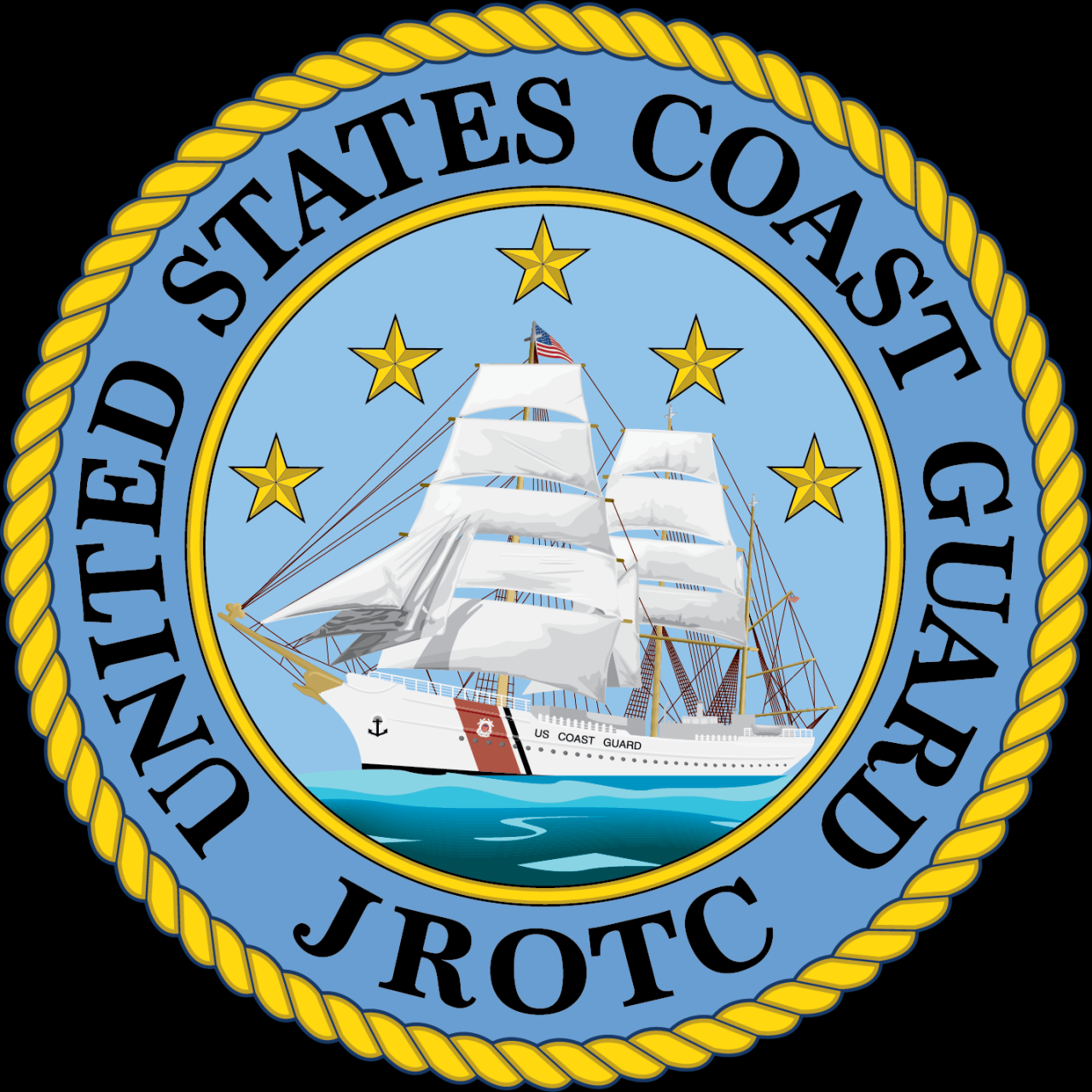Embarking on an exploration of what are the expectations of JROTC, this guide delves into the core values and standards that shape the program. From academic excellence to leadership development and physical fitness, JROTC cadets are held to high expectations that prepare them for success in college, career, and life.
Within this comprehensive overview, we will explore the academic requirements, leadership qualities, physical fitness standards, and community service expectations that define the JROTC experience. By understanding these expectations, potential cadets and their families can make informed decisions about whether JROTC is the right fit.
Expectations of JROTC
JROTC (Junior Reserve Officers’ Training Corps) programs are designed to instill discipline, leadership, and citizenship in high school students. They are also aimed at developing students’ physical fitness and providing them with a basic understanding of military science.
Core Values and Principles
The core values and principles of JROTC are based on the U.S. Army’s values of loyalty, duty, respect, selfless service, honor, integrity, and personal courage. These values are taught through classroom instruction, physical training, and leadership experiences.
- Loyalty:JROTC cadets are expected to be loyal to their country, their school, and their fellow cadets.
- Duty:Cadets are expected to fulfill their obligations to their country, their school, and their community.
- Respect:Cadets are expected to respect themselves, their fellow cadets, and their instructors.
- Selfless Service:Cadets are expected to put the needs of others before their own.
- Honor:Cadets are expected to be honest and truthful in all their dealings.
- Integrity:Cadets are expected to do the right thing, even when it is difficult.
- Personal Courage:Cadets are expected to have the courage to stand up for what they believe in, even when it is unpopular.
Academic Expectations
JROTC cadets are held to high academic standards. They are expected to maintain a minimum GPA of 2.5 and meet all academic milestones, such as passing all required courses and graduating on time.
Maintaining a high GPA is important for JROTC cadets because it demonstrates their commitment to academic achievement and their ability to balance their responsibilities. It also makes them more competitive for scholarships, college admissions, and military service.
Academic Support
JROTC programs offer a variety of academic support services to help cadets succeed in their studies. These services may include tutoring, mentoring, and study groups. Cadets are encouraged to take advantage of these services to improve their academic performance.
Leadership and Citizenship

JROTC programs emphasize the development of leadership skills and responsible citizenship among cadets. These qualities are essential for personal growth, community involvement, and future success.
Cadets are expected to demonstrate leadership qualities such as integrity, discipline, and teamwork. They learn to set goals, make decisions, and motivate others. Through practical experiences and training, cadets develop the skills necessary to lead effectively in various situations.
Community Involvement
JROTC programs actively promote community involvement and foster a sense of responsibility among cadets. Cadets participate in various community service projects, such as volunteering at local organizations, participating in clean-up drives, and supporting veterans’ events. These activities not only benefit the community but also instill in cadets the importance of giving back and being active citizens.
Physical Fitness
Physical fitness is an integral aspect of JROTC. Cadets are expected to maintain a high level of physical fitness to meet the demands of the program and to prepare them for the challenges of military service. The JROTC physical fitness standards are based on the Army Physical Fitness Test (APFT), which includes three components: the two-mile run, push-ups, and sit-ups.
Maintaining a healthy and active lifestyle provides numerous benefits for JROTC cadets. Regular exercise helps to improve cardiovascular health, muscular strength and endurance, and flexibility. It also helps to reduce stress, improve mood, and boost energy levels. Additionally, physical fitness can help cadets to develop self-discipline, teamwork skills, and a sense of accomplishment.
APFT Standards
The APFT standards for JROTC cadets are as follows:
- Two-mile run: 15:54 minutes (male) / 19:42 minutes (female)
- Push-ups: 42 (male) / 27 (female)
- Sit-ups: 53 (male) / 43 (female)
Uniforms and Discipline: What Are The Expectations Of Jrotc
The JROTC uniform is a symbol of pride, discipline, and respect. Wearing the uniform properly demonstrates a commitment to the program and its values. Adhering to the dress code ensures a professional appearance and creates a sense of unity among cadets.
Discipline is essential in JROTC. Following established rules and regulations fosters a structured environment that promotes order, accountability, and teamwork. By adhering to discipline, cadets learn to respect authority, follow instructions, and work together effectively.
Uniform Expectations, What are the expectations of jrotc
- Wear the uniform with pride and respect.
- Ensure the uniform is clean, pressed, and fits properly.
- Follow the dress code regulations, including proper grooming standards.
- Maintain a professional demeanor while wearing the uniform.
Discipline Expectations
- Follow instructions and commands promptly.
- Respect superiors and peers.
- Maintain a positive attitude and avoid disruptive behavior.
- Hold oneself accountable for actions and consequences.
Community Service
JROTC programs emphasize the importance of giving back to the community. Cadets are expected to participate in a variety of community service activities throughout their JROTC experience.
Community service not only benefits the community but also helps cadets develop important life skills such as leadership, teamwork, and empathy. It also promotes civic engagement and volunteerism, which are essential for a healthy and vibrant society.
Benefits of Community Service
- Provides cadets with opportunities to give back to their community.
- Helps cadets develop important life skills such as leadership, teamwork, and empathy.
- Promotes civic engagement and volunteerism.
- Strengthens the bond between JROTC and the community.
Extracurricular Activities
JROTC programs offer a wide range of extracurricular activities that provide cadets with opportunities to develop essential life skills beyond the classroom.
Participating in these activities not only enhances their physical fitness and leadership abilities but also fosters teamwork, communication, and problem-solving skills.
Drill Team
Drill teams provide cadets with a structured environment to learn precision marching, teamwork, and discipline. They participate in competitions and parades, showcasing their skills and representing their JROTC unit.
Rifle Team
Rifle teams offer cadets the opportunity to develop marksmanship skills, firearm safety, and discipline. They participate in competitions and training exercises, promoting accuracy and responsible handling of firearms.
Color Guard
Color guards are responsible for presenting the American flag and other national colors during ceremonies and events. They instill a sense of patriotism, respect, and pride in cadets.
Leadership Clubs
Leadership clubs provide cadets with a platform to develop their leadership skills through workshops, guest speakers, and community involvement. They foster critical thinking, decision-making, and communication abilities.
Academic Clubs
Academic clubs, such as the National Honor Society, encourage cadets to excel in their studies and develop a strong work ethic. They provide opportunities for academic enrichment and recognition.
Community Service Clubs
Community service clubs engage cadets in volunteer activities that benefit their local communities. They promote empathy, social responsibility, and a sense of civic duty.
Career and College Preparation
JROTC programs play a pivotal role in preparing cadets for future careers and college. They instill valuable skills and attributes that are highly sought after by employers and educational institutions.
Military Service
JROTC provides a solid foundation for cadets who aspire to pursue a career in the military. The program’s emphasis on discipline, leadership, and teamwork aligns well with the demands of military service. Cadets gain practical experience in drill and ceremony, physical fitness, and marksmanship, which can be advantageous during basic training.
User Queries
What are the academic expectations of JROTC cadets?
JROTC cadets are expected to maintain a high GPA and meet academic milestones. They must demonstrate proficiency in core subjects such as math, science, and English.
What leadership qualities are expected of JROTC cadets?
JROTC cadets are expected to develop leadership qualities such as integrity, responsibility, and teamwork. They learn to lead by example and motivate others.
What are the physical fitness standards for JROTC cadets?
JROTC cadets must meet physical fitness standards that include exercises such as push-ups, sit-ups, and running. They are encouraged to maintain a healthy and active lifestyle.
